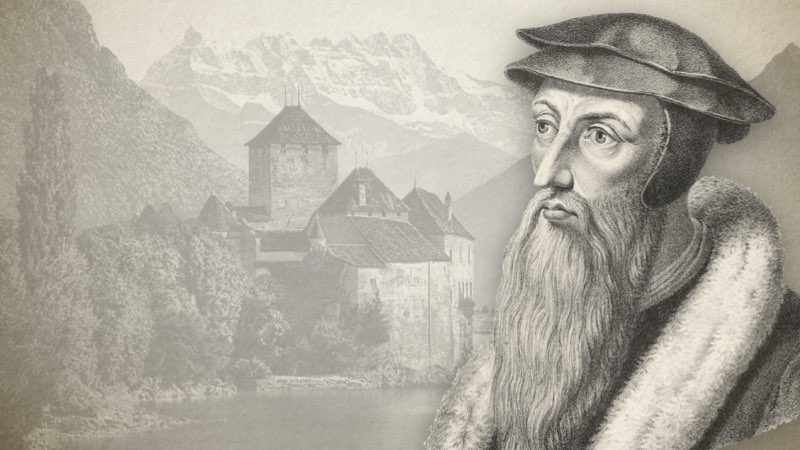-
Book 2: Chapter 17, Christ Rightly And Properly Said To Have Merited Grace And Salvation For Us
The three leading divisions of this chapter are,—I. A proof from reason and from Scripture that the grace of God and the merit of Christ (the prince and author of our salvation) are perfectly compatible, sec. 1 and 2. II. Christ, by his obedience, even to the death of the cross (which was the price of our redemption), merited divine favour for us, sec. 3–5. III. The presumptuous rashness of the Schoolmen in treating this branch of doctrine. Sections. 1. Christ not only the minister, but also the author and prince of salvation. Divine grace not obscured by this mode of expression. The merit of Christ not opposed to the mercy of God, but depends upon it. 2. The compatibility of the two proved by…
-
Book 2: Chapter 16, How Christ Performed The Office Of Redeemer In Procuring Our Salvation. The Death, Resurrection And Ascension Of Christ.
This chapter contains four leading heads—I. A general consideration of the whole subject, including a discussion of a necessary question concerning the justice of God and his mercy in Christ, sec. 1–4. II. How Christ fulfilled the office of Redeemer in each of its parts, sec. 5–17. His death, burial, descent to hell, resurrection, ascension to heaven, seat at the right hand of the Father, and return to judgment. III. A great part of the Creed being here expounded, a statement is given of the view which ought to be taken of the Creed commonly ascribed to the Apostles, sec. 18. IV. Conclusion, setting forth the doctrine of Christ the Redeemer, and the use of the doctrine, sec. 19. Sections. 1. Every thing needful for…
-
Book 2: Chapter 15, Three Things Briefly To Be Regarded In Christ—Viz. His Offices Of Prophet, King and Priest
The principal parts of this chapter are—I. Of the Prophetical Office of Christ, its dignity and use, sec. 1, 2. II. The nature of the Kingly power of Christ, and the advantage we derive from it, sec. 3–5. III. Of the Priesthood of Christ, and the efficacy of it, sec. 6. Sections. 1. Among heretics and false Christians, Christ is found in name only; but by those who are truly and effectually called of God, he is acknowledged as a Prophet, King, and Priest. In regard to the Prophetical Office, the Redeemer of the Church is the same from whom believers under the Law hoped for the full light of understanding. 2. The unction of Christ, though it has respect chiefly to the Kingly Office,…
-
Book 2: Chapter 14, How Two Natures Constitute The Person Of The Mediator
This chapter contains two principal heads: I. A brief exposition of the doctrine of Christ’s two natures in one person, sec. 1–4. II. A refutation of the heresies of Servetus, which destroy the distinction of natures in Christ, and the eternity of the divine nature of the Son. Sections. 1. Proof of two natures in Christ—a human and a divine. Illustrated by analogy, from the union of body and soul. Illustration applied. 2. Proof from passages of Scripture which distinguish between the two natures. Proof from the communication of properties. 3. Proof from passages showing the union of both natures. A rule to be observed in this discussion. 4. Utility and use of the doctrine concerning the two natures. The Nestorians. The Eutychians. Both justly…
-
Book 2: Chapter 13, Christ Clothed With The True Substance Of Human Nature
The heads of this chapter are, I. The orthodoxy doctrine as to the true humanity of our Saviour, proved from many passages of Scripture, sec. 1. II. Refutation of the impious objections of the Marcionites, Manichees, and similar heretics, sec. 2–4. Sections. 1. Proof of the true humanity of Christ, against the Manichees and Marcionites. 2. Impious objections of heretics further discussed. Six objections answered. 3. Other eight objections answered. 4. Other three objections answered. 1. Of the divinity of Christ, which has elsewhere been established by clear and solid proofs, I presume it were superfluous again to treat. It remains, therefore, to see how, when clothed with our flesh, he fulfilled the office of Mediator. In ancient times, the reality of his human…
-
Book 2: Chapter 12, Christ, To Perform The Office Of Mediator, Behoved To Become Man
The two divisions of this chapter are, I. The reasons why our Mediator behoved to be very God, and to become man, sec. 1–3. II. Disposal of various objections by some fanatics, and especially by Osiander, to the orthodox doctrine concerning the Mediator, sec. 4–7. Sections. 1. Necessary, not absolutely, but by divine decree, that the Mediator should be God, and become man. Neither man nor angel, though pure, could have sufficed. The Son of God behoved to come down. Man in innocence could not penetrate to God without a Mediator, much less could he after the fall. 2. A second reason why the Mediator behoved to be God and man—viz. that he had to convert those who were heirs of hell into children of…


